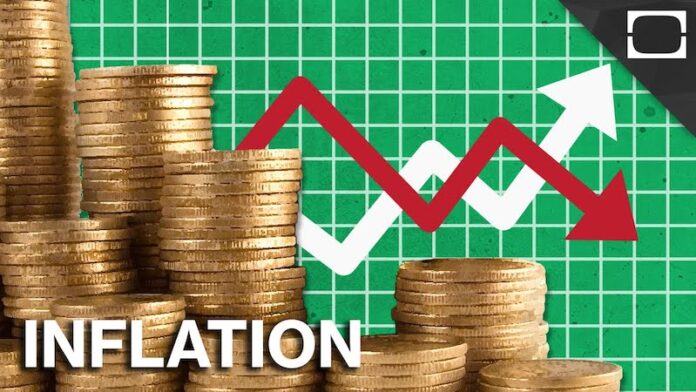Economic experts have urged Nigerians to diversify their asset classes and investment portfolios to hedge against the country’s inflationary pressures in order to enhance profitability.
The spoke at the Nairametrics economic outlook for Nigeria in 2023 webinar with the theme: “2023 Economic Opportunities to Mitigate Impact of Headwinds,” on Saturday.
Mr Kalu Aja, a certified financial education instructor, observed that the country’s current inflation rates averaged 20 per cent.
He said that to get returns meant making profits above 21 per cent; a difficult phenomenon.
Aja opined that to make returns in Nigeria, a combination of portfolios and a better handling of the current insecurity situation which trigger food inflation was very critical.
He added that businesses or individuals looking to invest in the country must come together, raise capital to take advantage of commercial papers in the capital market.
Aja noted that the youthful population must invest and build their portfolio over time to get returns in the long-term.
To address the country’s debt situation, Aja said that some percentage of Nigeria’s assets must be sold to pay off the debt principal as well as foreign debts.
“If we can have a handle on insecurity, it would drive inflation down and help to make a real rate of returns.
“Investments must be diversified and if you have the means to earn foreign currency risk free; embrace it. You can also do a dollar fund in Nigeria.
“Investing in Nigeria now should be very flexible and short term and one must spread risk by having more people invest with you,” he said.
Mr Andrew Nevin, the Chief Economist, PwC Africa, noted that Nigeria currently was operating a harsh business environment characterised by multiple taxation, weak purchases and other macroeconomic challenges.
Nevin, however, stated that the real estate environment had improved massively due to the professionalism of the players in the sector and the fact that land held real value that does not depreciate.
The economist said that the best investment class was the brain and charged Nigerians to up-skill and invest in themselves to beat the headwinds.
“Nigeria must also expand exports in fields of exports, technology and others against manufacturing or physical goods to fully engage the more youthful and growing population going forward,” he said.
Mr Cheta Nwanze, Lead Partner, SBM Intelligence, affirmed that all states in the country particularly Lagos, Ogun, Kano, Anambra, Rivers, Akwa Ibom, Nasarawa, and Abuja offered opportunities for investments.
Nwanze stressed the need for better integrate Lagos to Onitsha with road infrastructure to harness trade and commerce activities worth billions of dollars across the region.
“Nigeria has been a net exporter of people for many years now as our economy never generates enough jobs to accommodate the unemployed hence the ‘Japa’ syndrome.
“People need to up-skill as quick as possible to match up technology advancement and disruption and Nigeria needs to take advantage of its proximity to Europe to export apparels and other things but we must create quality to be accepted.
“Customs must not be solely focused on the unrealistic revenue target set for them and a reform is needed to unleash the country’s potential,” he said.
Nwanze advocated the importance of a phased out petroleum subsidy removal spread across the next four years against the once-and-for-all-style to mitigate the impact of inflation and the standard of living of people.
He also stressed the need for transparency in the use of the removal proceeds to gain the trust of the people.
Mr Ugo-Dre Obi-Chukwu, Founder, Nairametrics, projected that the socio-political challenges facing Nigeria in 2023 included fallout of the general elections, fiscal and debt crisis, corruption, inflation, migration, subsidy removal, protests amongst others.
Obi-Chukwu stated that the outlook for 2023 would be characterised by likely rejection of electoral outcomes, partial implementation of budget and uncertainty in making critical business decisions.
“In 2023, Nigerians should expect to pay more taxes as government plans to leverage taxes to boost non-oil revenue and investing in technology to ensure compliance,” he said.




